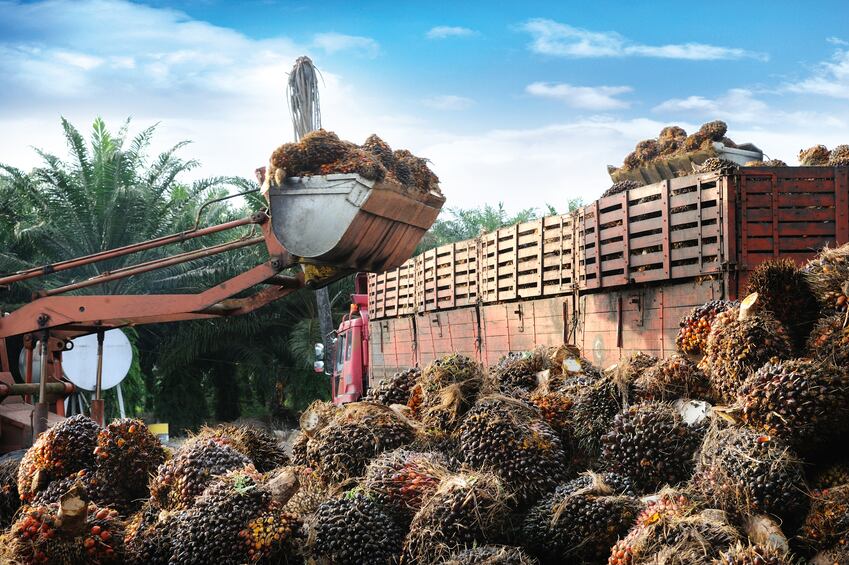Swiss food giant Nestlé revealed today (14 September) that it will use deforestation monitoring tool Starling, which was developed by Airbus and The Forest Trust (TFT), to measure progress in protecting forests in its palm oil supply chain. The satellite-based service will be used to monitor 100% of Nestlé’s global palm oil supply, the company revealed.
In 2010, Nestlé made its No Deforestation pledge, which committed that none of the group’s products would be linked to deforestation by 2020. By 2017, the company revealed 63% of its global supply chain was free from deforestation.
Magdi Batato, Nestlé EVP and head of operations, said that the company now hopes to “accelerate” progress.
"Nestlé has always been committed to source the raw materials we need to make our products in a responsible manner,” Batato claimed. "In order to accelerate this journey, we have worked with Airbus and TFT since mid-2016 to embark on a pilot project over the Perak landscape in Malaysia. Starling satellite monitoring is a game changer to achieve transparency in our supply chain and we are pleased to extend this collaboration to cover 100% of Nestlé's global palm oil supply chains by the end of the year.
“We will also extend this program to cover our pulp and paper supply chains next year as well as soya at a later stage," he added.
Increased transparency
In order to tackle deforestation, Nestlé suggested a collaborative industry-wide approach is necessary, with efforts to improve “transparency, inclusiveness, direct supply chain engagement and capacity building” throughout the supply chain.
Earlier this year, Nestlé committed to achieve 100% RSPO certified sustainable palm oil by 2023. By December 2018, 100% of Nestlé's palm oil supply chain, certified or not, will be monitored for deforestation using satellite imagery.
In an effort to further increase transparency, Nestlé has made available the names of the direct suppliers and mills that it buys palm oil from. This covers 91% of the total volume of palm oil Nestlé sources annually, the company revealed.
Benjamin Ware, Nestlé’s head of responsible sourcing, said that the adoption of Starling technology will allow the company to be more transparent in its dealings with palm oil suppliers.
"Our 'eyes in the sky' will monitor our palm oil supply chain 24/7, regardless of their certification status. This will enable us to further disclose publicly what we find, where we choose to suspend non-compliant suppliers, and where we choose to engage and improve the situation,” Ware explained.
“This will come with a request to suppliers to share their concession information, and work within the value chain with our partners to improve based on non-disputable evidences. This information along with our progress reports will be shared with our stakeholders, including consumers, investors and retailers. They will be made available in our Transparency Dashboard to be published on our website by 1 March 2019.”
Cutting edge tech for year-round monitoring
Starling uses “cutting-edge” technology combining high-resolution radar and optical satellite imagery to provide “unbiased year-round monitoring” of land cover changes and forest cover disturbances.
Data collected along with its analytics enable companies to manage risks and perform field intervention strategies to drive changes.
"Starling is a fully digital service, offering best-in-class machine learning and cloud technologies to provide very precise and near-real time forest cover change information. Terabytes of satellite images are turned into actionable information, to provide our customers with a reliable service to monitor their supply chains and to early identify potential deforestation events," explained François Lombard, head of the intelligence business at Airbus Defence and Space.
Starling utilizes Airbus's high-resolution SPOT 6 and SPOT 7 satellites as well as third-party sensors, which are designed for large geographical areas. The platform’s reference maps are able to differentiate between production forests that include palm plantations, protected forests and other areas.
‘Next step’ towards zero deforestation
TFT, which has supported Nestlé’s efforts to combat deforestation since 2010, welcomed the development.
CEO Bastien Sachet said that the news was a “milestone” in the group’s transition to a deforestation-free supply chain.
"When we started our No Deforestation journey with Nestlé in 2010, no tools existed for them to effectively monitor their suppliers in this way and a solution had to be created. Now, we are pleased to say, there is a ready and able tool to help companies rid deforestation from their supply chains. We see this milestone as the next step in our journey with Nestlé."

